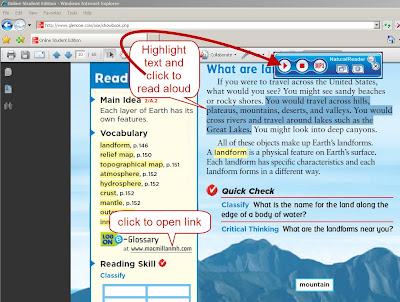http://groups.diigo.com/group/flexible-math-websites
We will use the following tags on ALL links in these groups, and then add other tags as appropriate for the subject area. Here are the tags you can expect to see:
For all Flexible Websites groups:
- whether the website is free: "free", "trial", "$$", "subscription_required"
- what grade level the website supports: "PK-2" "3-5" "MS" "HS"
- whether the website has a search function: "searchable"
- if the website has text to speech functions built in: "TTS" "speaks"
- designate what types of supports the website has for students: "video", "pictures", "background_information", "supported_practice", study_guides",
- what types of supports the website has for teachers: "lesson_plans"
- which MCPS course and teaching unit the website supports: "Math6", "fractions_decimals_percents", "probability", "geometry"
After you apply to join and are accepted by the moderator, you can view a breif video on how to contribute websites to the group and provide descriptions/tags to help others find them: video

Let us know what you think and any problems you experience!



